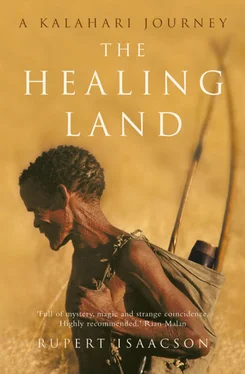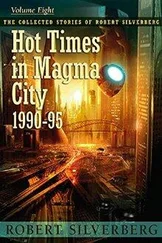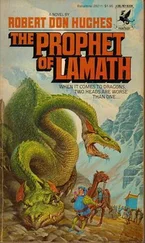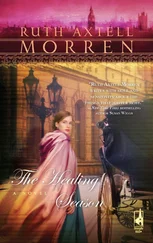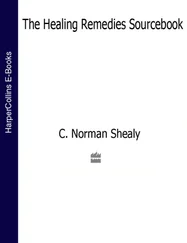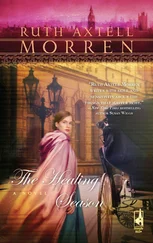My petite, blonde, bespectacled mother grew up a true Loxton, becoming involved, while at university, in anti-apartheid campaigns. Her old photograph albums show pictures of the time: my mother (a platinum perm atop a Jane Mansfield bust) and a black male student symbolically burning the government’s separate education Bill; my mother speaking on podiums; brawls between Afrikaans students loyal to the system and my mother’s leftist crowd; pictures of more serious attacks by policemen. One in particular stands out: a march by black domestic maids, protesting for better working conditions, charged with batons and dogs. In the foreground, a woman is on the ground, a police-dog savaging her abdomen, the handler’s truncheon raised high, about to deliver a skull-cracking blow to the woman’s head.
By this time Barbara had remarried, and she and her new husband (a politically active, left-wing lawyer named George Findlay) decided it would be best if my mother left the country before the inevitable arrest that must follow such activities. She was glad to get out and go adventuring in the world as her parents had and took the boat to England along with her sister, Lindsay. In England my mother flirted with the ANC, but became diverted – by art school, by meeting my father, himself an African émigré – and settled down to produce my sister and I while embarking on a career as a sculptor and artist. But when I was eighteen months old, and my sister four, my mother took us back to Africa and presented us to Barbara and Allen (who, though as much of an alcoholic as ever, had moved to Johannesburg and started another family).
A year later, both Allen and Barbara were dead. And in a sad postscript to their failed relationship, though they lived at opposite ends of the country they died within hours of each other. One day while at work in the Sunday Times office, Allen collapsed from emphysema (he had been a heavy smoker), and never regained consciousness. A telegram was sent to Barbara. According to her husband, she went quiet, and retired to have a think and be alone with her memories. When he knocked at the door a short time later to see if she was all right, there was no response. He opened the door and found her lying dead from a stroke.
My mother went almost mad with grief. She had at last begun to know her parents, and now suddenly they had been snatched away. Throughout our childhood, she would be prone to periodic depressions, and the sense of being an exile never left her. Unlike my father, who fitted happily into London (he later told me that even in his Rhodesian childhood he had longed for cities: ‘The first time I went to Johannesburg and smelled the car fumes and saw all that concrete around me, I felt an almost sensual thrill of excitement and pleasure’), my mother missed Africa keenly. She expressed it in her sculpture, her painting, almost all of which featured African people, African scenes.
It was perhaps to make up for the loss of her parents, and of all that she had hoped we children would have learned from them, that she became such a willing story-teller. She told us of the four Loxton brothers – Jesse, Samuel, Jasper and Henry – who in 1830 had come to South Africa from the Somerset village of Loxton and immediately dispersed into the wide spaces of the dry north, the area known as the Great Karoo.
Like all the other early Karoo settlers, the Loxtons lived, at first, by pastoral nomadism learned from the Khoi, a people who looked like Bushmen and spoke a similar clicking language, but who lived by herding rather than hunting. Having shown the whites how to follow the rains and where to find water in this unendingly arid land, the Khoi soon found themselves dispossessed, along with the local Bushman clans. By the time the Loxton brothers arrived, the Khoi had been reduced to working for the whites, and the last remaining Karoo Bushman had retreated to mountain strongholds, from where they watched the white men carve out farms by the land’s few natural springs and kill off the game.
For the whites, it was a slow, monotonous existence, enlivened only by hunting, mostly for wild animals, but sometimes also for Bushmen, who would, as their situation became more and more desperate, occasionally materialise from nowhere to raid livestock. For many Karoo settlers, hunting Bushmen became a well-known, if little talked about, sport. I can only speculate that my family must have done as others did.
Eventually, the Loxton brothers bought land and settled down. Henry, the youngest (my great-great-grandfather) trekked over the Drakensberg mountains into Natal – Zulu Country – where he ended up a wagon-maker, wedded to an Afrikaner woman named Agathe-Celeste (my great-great-grandmother), who had been abandoned as an infant in the court of the Zulu king Mpande by her ivory-hunting father. She had spent her girlhood there, re-entering white society only when she became a young woman and married my great-great-grandfather.
There are many stories about Agathe-Celeste. The best was included in a book of African reminiscences ( Thirty Years in Africa ), written by a bluff old Africa hand called Major Tudor Trevor, who knew my great-great-grandparents well. It concerned her two pet lions – Saul and Deborah. According to the major, these two lions, which Henry Loxton had given to his wife as cubs, had a game. They would wait at the garden hedge, which ran along the pavement and around the street corner, until someone came walking by. When the walker was halfway along the hedge, one of the cubs would slip through the foliage, drop onto the pavement and silently trail the unwitting pedestrian until he or she turned the corner. There the other cub, who had previously slipped through the hedge on that side, would be waiting. It would let out a kittenish roar in the face of the astonished walker, who would then turn and find the other cub behind, roaring too. While the cubs were still small, and could be run off with a shout, the burghers of the town tolerated their game as a charming, harmless local eccentricity.
Around the time that Saul and Deborah were half-grown (‘as big as mastiffs’, wrote Trevor Tudor), a new predikant, or Minister of the Dutch Reformed Church, arrived in town. One Sunday after church, while sitting on the porch with the Loxtons, the major saw this new priest coming up the road, formally turned out in frock coat, black topper and gloves, with a Bible under his arm. ‘At that moment,’ he wrote, ‘out from behind sprang Deborah. She crouched low. The parson heard the thud of her landing and turned round as if to greet a parishioner … then we heard a kind of drawn out sob, his hat fell off, his Bible dropped, and in a flash he turned and ran off down the street …’
Deborah caught up with him in a few easy bounds and, first with one swipe, then another, ripped off his flying coat tails. The predikant put on a spurt, rounded the corner at a gallop, whereupon out jumped Saul, roaring. With a squeal like the air being squeezed from a bagpipe, the predikant crumpled to the ground. Saul climbed onto his chest and began licking his face, intermittently snarling at Deborah to leave off what he considered his kill. The major, meanwhile, was running to the rescue. Coming up on Saul where he lay, pinning the priest to the road, he fetched the half-grown lion a vicious kick in the ribs. But instead of backing off as expected, Saul turned, slashed at the major’s leg and made ready to spring. It was my great-great-grandmother who saved the day, arriving seconds later with a heavy sjambok (giraffe- or hippo-hide whip), ‘at the first stroke of which’, wrote Trevor Tudor, ‘and a stream of abuse in Dutch, the cubs went flying.’ The major remained, ever after, in awe of my great-great-grandmother, referring to her always as ‘that magnificent woman’.
Читать дальше
